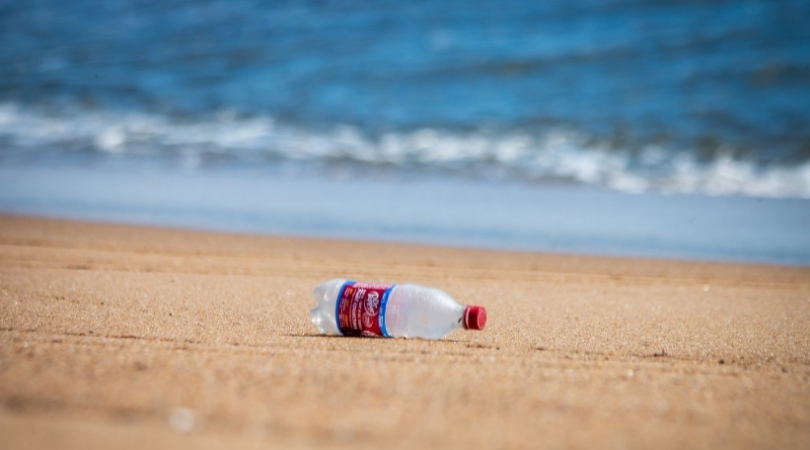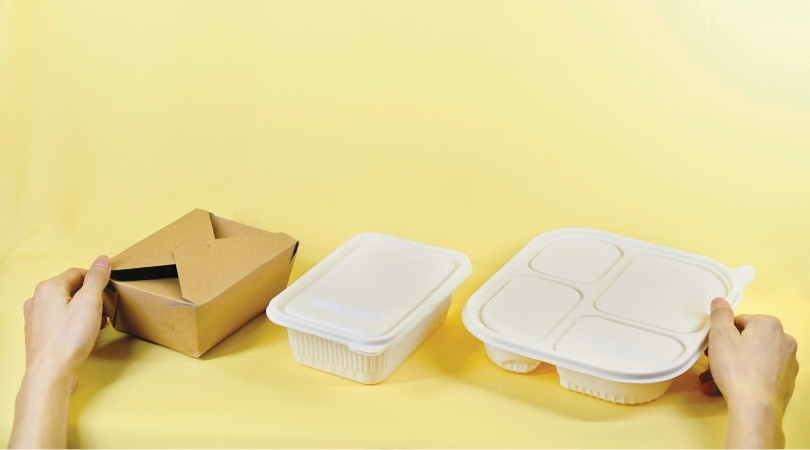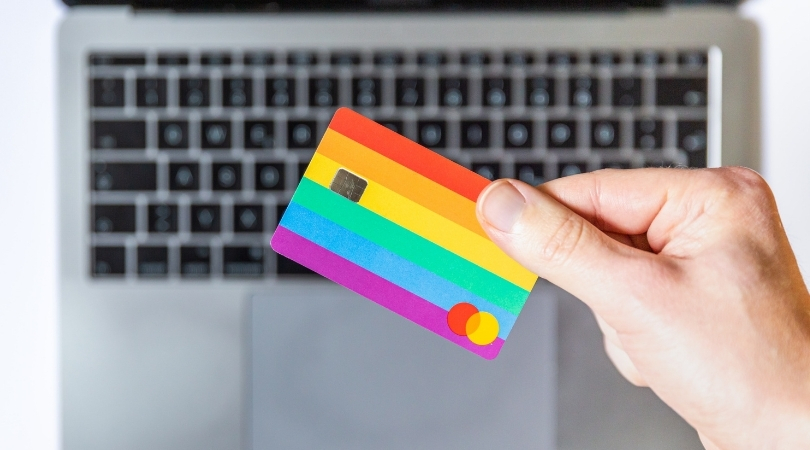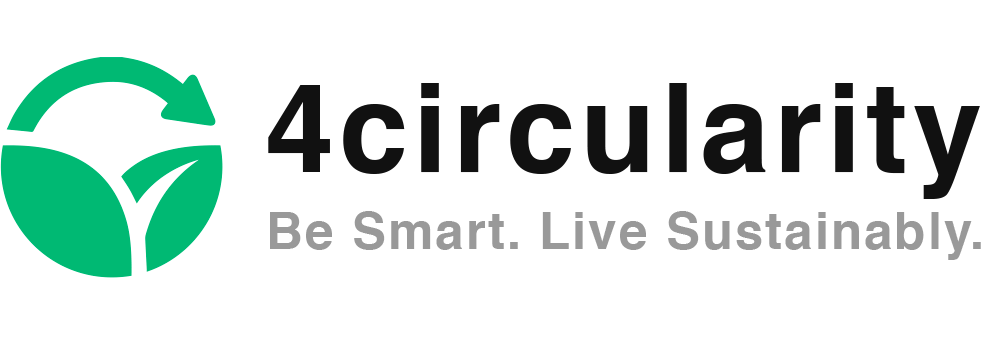Packaging has a multifaceted purpose that range from providing protection, safety, enhanced usability, attractive looks, optimal design and specific customer requirements, to name a few. And when it comes to food packaging one of the main purpose is hygiene and keepings contents safe and protected from leaking, chemicals and toxics.
In this article I will provide an insight on how the COVID-19 pandemic has impacted on the use of food packaging and increased packaging use for e-commerce industry. But let’s start by giving a context for packaging, especially plastic packaging production and consumption regulation.
EU Directive on single-use plastics

Why plastic waste can be found on the seafronts, beaches and forests, almost everywhere we rest our eyes at? The reasons are complex but two of them are a lack of waste education and a proper waste management system. Legislation is needed to force out plastic pollution and the harmful side effects of microplastics to the environment, animals and human health.
The main purpose of the EU Directive on single-use plastics is to reduce waste generation, design out waste and to promote circular approach giving priority to sustainable and non-toxic reusable products rather than to single-use products. Part of the European Green Deal and Europe’s goal to become carbon neutral by 2050 the Directive came into force on the 2nd of July 2021 and addresses the ten most found items on beaches in Europe and bans their manufacturing from plastic altogether.
EU single-use plastic Directive address these 10 items that are banned from the 2nd of July 2021 onwards:
- Plastic bags
- Cotton bud sticks
- Cutlery, plates, straws and stirrers
- Food containers (made of expanded polystyrene (EPS))
- Balloons and sticks for balloons
- Cigarette butts
- Cups for beverages
- Beverage containers
- Packets and wrappers
- Wet wipes and sanitary items
Since all these items are used billions of times every year the key is to find alternatives and more sustainable, reusable and environmentally-friendly materials to produce them from. In order to reduce the plastic pollution and litter ending up to marine environment the single-use plastic directive is the first step in the race to plastic waste free future. However, the COVID-19 pandemic did not make the transition easy.
Food packaging industry and COVID-19 pandemic

Let’s take a look at food packaging industry. On the list of banned single-use plastic items the ones that are bolded concern the takeout and food packaging industry. As we know it, packaging is there is fulfill its mission for a short period of time and one time only. To solve this we need innovative solutions that replace single-use plastics with sustainable materials that can fulfill the same purpose.
When the first lockdowns and curfews of COVID-19 pandemic started around the world the businesses were quickly impacted by disruptions. Packaging industry as any other industry had to quickly react to the drastic changes brought by the pandemic. Similarly, the Horeca sector reacted fast to the interruptions. Restaurants and coffee shops quickly transformed their facilities and infrastructure for not serving customers in but delivering food and beverage on take-away. On the other hand, supermarkets created a process of groceries ordering online and their home delivery service.
Food delivery service companies acted as enablers for restaurants and coffee shops to adapt to the changed business model. Uber Eats, Bolt Food, Deliveroo and Wolt provide a service that helps restaurants to do the deliveries. With their smart app takeout food providers are able to connect the physical aspect (restaurant kitchen) with the digital aspect (order handling, customer support) and mobility (no-contact home delivery).
The fight against packaging waste and especially plastic waste didn’t get easier when the pandemic started and the demand for single-use packaging manifolded. Data from McKinsey&Company shows that especially at the beginning of the pandemic people’s concerns were more in the hygiene and safety of packaging than in the sustainability performance. For example, a global coffeehouse chain temporarily banned reusable cups amid the outbreak.
However, the COVID-19 pandemic created a spike in demand for eco-friendly food packaging solutions especially due to the rise in takeout orders that consume single-use packaging. While spending more time at home and actually seeing how much packaging waste people generated in a day, a week, a month opened people’s eyes to the environmental footprint of packaging waste and its impact on marine litter. Consequently, innovative plastic free packaging solutions are highly on demand and hours are put into researching more eco-friendly packaging options that are made from renewable materials while increasing the reuse of packaging.
An article by World Economic Forum highlights new innovative alternatives for conventional plastic packaging; TIPA compostable packaging and Soapack cosmetics packaging for liquids that is made of soap as well! As by UN SDG12, businesses need to focus on developing business practices and innovations that increase their energy-efficient and circular patterns, reduce waste generation, and support sustainable lifestyles and consumption.
What the future holds for sustainable packaging?
World’s biggest fast food restaurant chain McDonald’s announced on the 2nd of July 2021 its newest initiative that aims to eliminate disposable packaging. McDonald’s introduces reusable tableware and tests reusable glasses, cups and plates with customers enjoying their meals in the restaurant. The test includes ten restaurants in France. Currently 97% of disposable packaging materials used in the restaurants are paper or carton based. Although the materials recycling rate is only 57,8% which doesn’t reach an acceptable level. In February, McDonald’s eliminated the plastic toys of Happy Meal’s and will exclude plastic bottles and cups by November 2021.
What about replacing plastic bottles with paper bottles? Paboco has designed a paper-based, recyclable and nature-friendly version for your favorite beverage products. Carlsberg, the Coca-Cola Company, The Absolut Company and L’Oréal are pioneering the prototypes of the next generation. If the Paboco project succeeds, we would soon experience walking into a supermarket or cosmetics shops and not seeing any plastic bottles but their paper-based alternatives. How cool that would be?
The world moved online

For consumers the COVID-19 pandemic changed what, when and where to buy. Due to restrictions, curfews and lockdowns, people spend more time at home creating a completely new situation compared to the “normal”. Everything changed from working in the office to working from anywhere, eating in instead of out to buying necessities online in stead of in person. Thus online shopping made it easy to become the most excessively developed industry when the world was in lockdown.
So, the pandemic resulted in a dramatic increase in e-commerce sector. The share of e-commerce of all retail sales jumped up from 16 percent to 19 percent in 2020. In terms of spending, the global e-commerce reached as high as $26.7 trillion. This has its implications on the packaging industry and sustainability is one of the main industry-shaping trends of the future.
Five trends that shape packaging industry post COVID-19:
- Make sure your packaging products are fit-to-purpose and designed for e-commerce
- Keep hygiene, safety and changed customer preferences in mind
- Use digitalization as a tool to make supply chains more efficient (integrated tags, real time tracking)
- Innovate in renewable materials use and circularity
- Draw a strong sustainability strategy and stand out with your narrative

